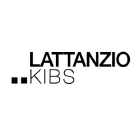WORKING WITH DG ECHO SANCTIONS | 2021 - 2027
EU RESTRICTIVE MEASURES
Restrictive measures (or ‘sanctions’) are a tool in the EU’s Common Foreign and Security Policy (CFSP), through which the EU can intervene where necessary to prevent conflict or respond to emerging or current crises, and to promote peace, democracy, respect for the rule of law, human rights and international law.
EU sanctions are targeted, aimed at those responsible for the policies or actions the EU wants to influence, while reducing as much as possible any unintended consequences. EU sanctions may target governments of non-EU countries, non-state entities, as well as companies, groups, organisations, or individuals through various measures, including arms embargoes, restrictions on admission of listed persons (travel bans), freezing of assets, and other economic measures such as restrictions on imports and exports.
All restrictive measures adopted by the EU comply with obligations under EU and international law.
TYPES OF SANCTIONS REGIMES
There are three types of sanctions regimes in place in the EU. First, there are sanctions adopted by the UN, which the EU transposes into EU law (‘UN sanctions’). Secondly, the EU may reinforce UN sanctions by applying stricter and additional measures (‘mixed sanctions regimes’). Finally, the EU may also impose sanctions on its own initiative (‘EU autonomous sanctions regimes’).
There are currently over 40 EU sanctions regimes in place. The majority of those are geographic in scope, i.e. (e.g. Syria, Iran, or North Korea). The EU has also adopted horizontal regimes targeting terrorism, cyber-attacks, proliferation and the use of chemical weapons, and serious human rights violations.
The EU sanctions map provides a visual overview of sanctions regimes currently in place.
ADOPTION PROCEDURE AND IMPLEMENTATION
Decisions relating to sanctions are taken by the Council of the European Union by consensus as a general rule, on the basis of proposals from the High Representative of the Union for Foreign Affairs and Security Policy (High Representative) and after discussion in the relevant Council working groups.
Restrictive measures are laid down in CFSP Council decisions. If the Council decision includes measures with economic and/or financial implications, those measures need to be implemented in a Council regulation. Based on the Council decision, the High Representative and the European Commission (with DG FISMA in the lead) present a joint proposal for a Council regulation. The joint proposal is examined and discussed by the relevant Council working groups for adoption.
The CFSP Council decision and the Council regulation are adopted together to allow for both legal acts to produce their effects at the same time.
Implementation and enforcement of EU sanctions is primarily the responsibility of the EU Member States. In its role as guardian of the treaties, the Commission oversees the implementation and enforcement of EU sanctions across Member States.
SCOPE OF APPLICATION
EU sanctions apply within the jurisdiction of the EU. The obligations they impose are binding on EU nationals in any location, on companies and organisations incorporated under the law of a Member State, on board aircraft or vessels under Member States´ jurisdiction, as well as on any person or entity within the EU. As part of the EU law, EU restrictive measures are also to be respected by the Commission when implementing the EU budget. This applies to EU operators involved in the provision of humanitarian aid. Also, such operators which are not directly bound by EU sanctions, might be required to comply with them by virtue of contractual conditions (e.g. if they act as implementing partners for the EU).
For further information, check the dedicated EU sanctions webpages
- European Commission: https://ec.europa.eu/info/business-economy-euro/banking-and-finance/international-relations/restrictive-measures-sanctions_en
- European Council and Council of the EU: https://www.consilium.europa.eu/en/policies/sanctions/
- European External Action Service: https://www.eeas.europa.eu/_en




